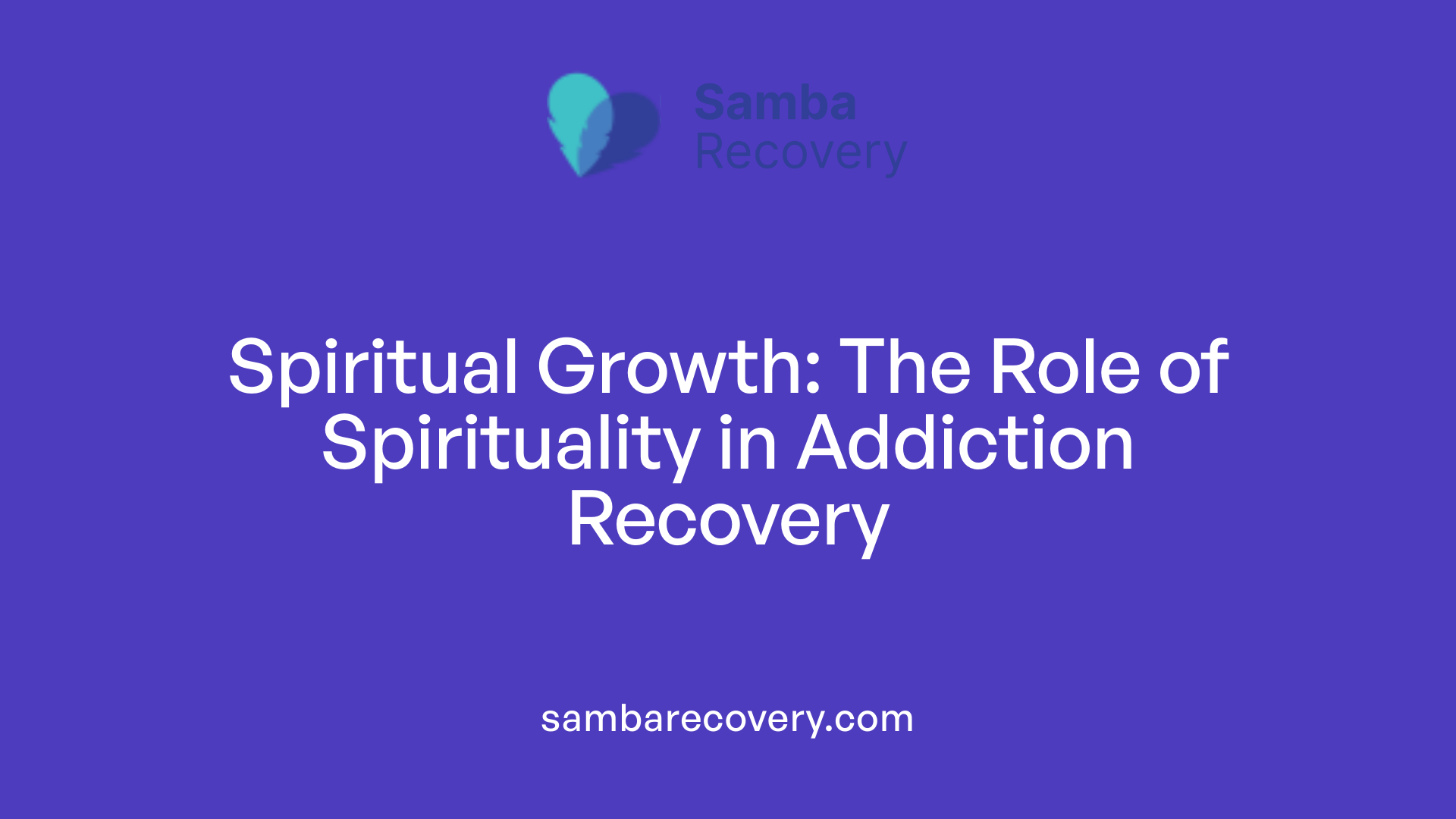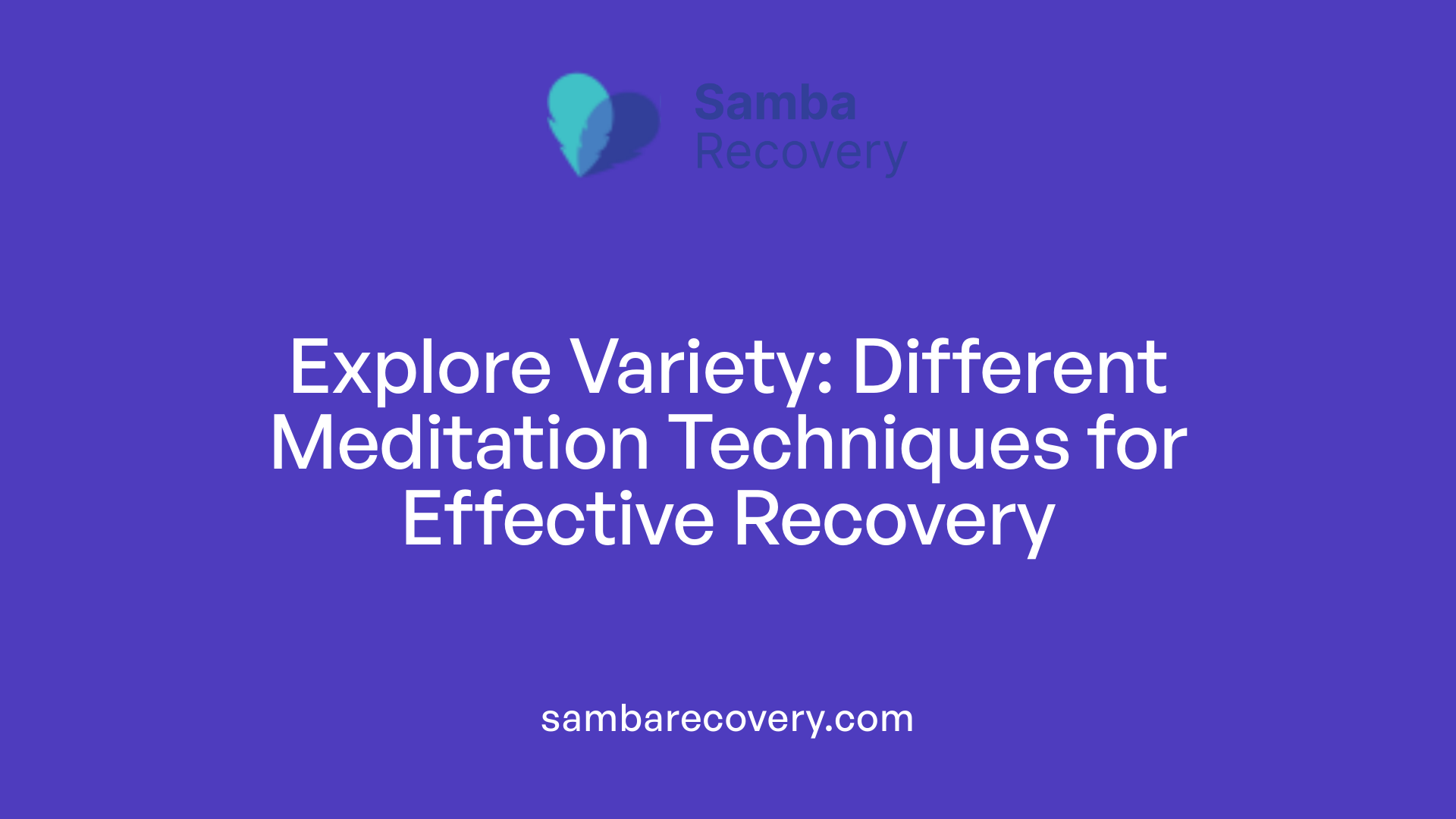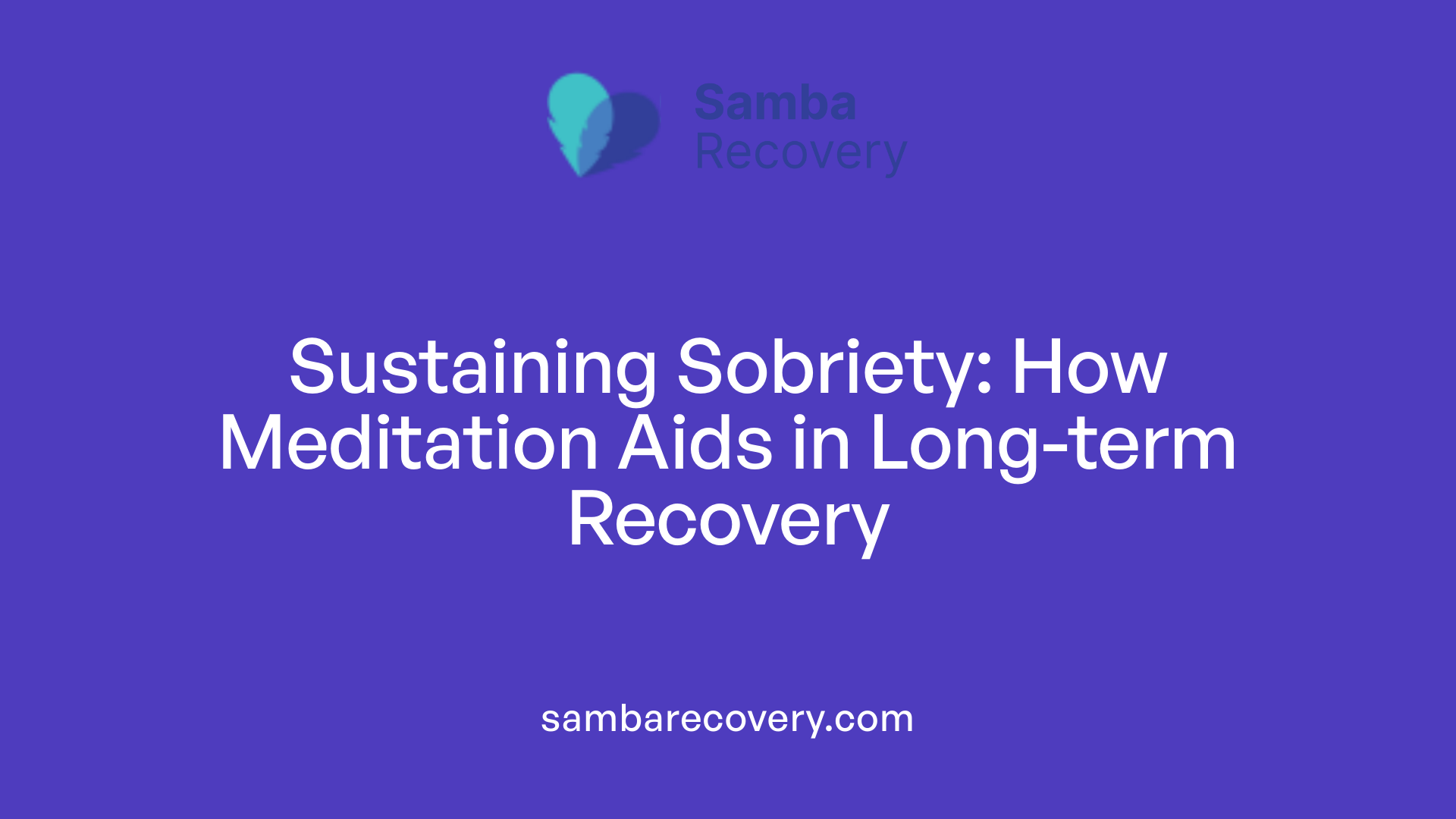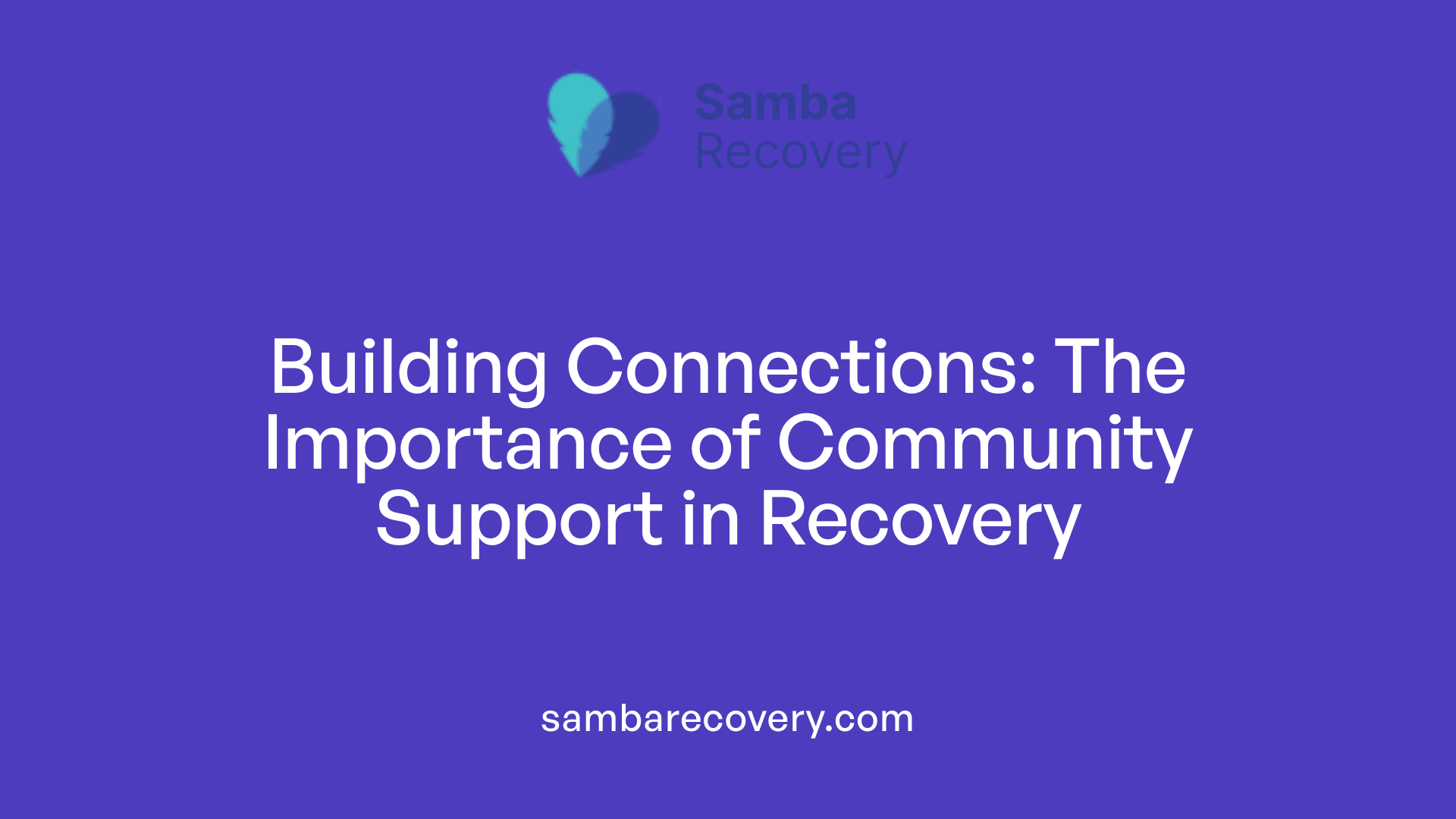Unveiling the Power of Meditation in Recovery
In the journey of addiction recovery, finding tools that not only address physical dependencies but also emotional and mental health can be transformative. Meditation retreats are increasingly recognized for their profound impact on individuals battling addiction, offering a sanctuary for reflection, healing, and renewal. By integrating mindfulness practices, these retreats support recovery in ways that transcend traditional therapeutic methods. The following exploration delves into the multifaceted role that meditation retreats play in fostering sobriety and emotional wellness.
Meditation Retreats: A Sacred Space for Self-Discovery

The environment and structure of meditation retreats
Meditation retreats provide a tranquil and supportive atmosphere for individuals seeking recovery from addiction. These retreats are typically held in serene settings, away from the chaos of daily life, which allows participants to disconnect from external distractions. The structure often includes scheduled sessions of various meditation styles, such as mindfulness, yoga, and silent reflection, which guide individuals toward deeper self-awareness.
How retreats facilitate personal reflection and growth
Retreats encourage personal reflection, offering time and space to explore inner thoughts and feelings. Participants can engage in practices like body scans and mindfulness meditation that foster emotional regulation and insight into their triggers. Silent periods are integral to this process, enabling a deeper connection to oneself and promoting understanding of one’s addiction.
The role of retreats in spiritual and holistic healing
The spiritual component of retreats nourishes a sense of connection and purpose. Through meditation and teachings on mindfulness, individuals can cultivate values such as trust and self-acceptance. These experiences support holistic healing by addressing not just the physical aspects of addiction, but also the emotional and spiritual dimensions, aiding in overall recovery and well-being.
The Misunderstood Power of Regular Meditation
Importance of Consistent Practice in Recovery
Regular meditation is essential in enhancing recovery outcomes for individuals overcoming addiction. It significantly helps in managing cravings and reducing the risk of relapse. Engaging in frequent meditation makes practitioners more adept at maintaining emotional stability, which is crucial during the turbulent process of recovery.
Studies indicate that individuals who meditate regularly experience improved focus and self-control, allowing them to navigate challenges more effectively. The consistent practice fosters a heightened state of awareness, enabling them to recognize and respond to their triggers without succumbing to impulsive behaviors.
Impact on Learning and Emotional Regulation Through Meditation
The physiological benefits of meditation extend to brain functionality. Regular meditation practice leads to physical changes in brain areas that regulate emotions, enhance memory, and improve overall cognitive functions. For example, mindfulness meditation has been found to increase functional connectivity in brain regions responsible for cognitive control and reward processing.
This neuroplasticity cultivated through meditation not only strengthens emotional regulation but also enhances decision-making skills, making it easier for individuals to resist unhealthy patterns. Furthermore, meditation practices like deep breathing and body scans can effectively manage stress and anxiety—common challenges in addiction recovery.
In summary, the combination of consistent meditation and mindfulness enhances emotional resilience, leading to better chances of maintaining sobriety and long-term recovery success. Meditation is a powerful tool that provides both immediate relief from stress and long-lasting benefits for emotional well-being.
Spirituality in the Recovery Process

What role does spirituality play in addiction recovery?
Spirituality plays a significant role in addiction recovery by providing individuals with a sense of purpose and connection that transcends their struggles. It helps individuals understand themselves better and fosters a deeper commitment to sobriety by aligning their recovery with a greater meaning in life.
Engaging in spiritual practices can promote improved mental and physical health, enhancing the overall recovery process. For instance, regular engagement in meditation can diminish negative emotions and boost mood, which are critical in navigating the challenges of recovery.
Programs such as Alcoholics Anonymous and Narcotics Anonymous emphasize the importance of spiritual beliefs, highlighting their crucial role in overcoming addiction and maintaining long-term sobriety.
Connection between spirituality and treatment success
Spiritual practices in recovery can lead to substantial emotional healing, assisting individuals in overcoming feelings of isolation and helplessness associated with addiction.
Surveys show that participants who actively engage in spiritual practices report more significant improvements in emotional stability and resilience against relapse. A sense of community fostered by spiritual support networks provides an essential scaffold that many individuals leverage during their recovery journey.
Role of spiritual practices in emotional healing
Incorporating spiritual practices into addiction treatment creates avenues for reflection and connection. Techniques such as mindfulness meditation can cultivate self-awareness, making it easier for individuals to confront triggers and manage cravings.
Spirituality also encourages attributes such as self-acceptance, trust, and faith, crucial for individuals striving to maintain sobriety.
Examples of spiritual practices in retreats
Silent retreats are excellent settings for fostering spirituality in recovery. They allow individuals to step back and reflect on their inner thoughts and feelings. Participants learn to focus on their emotional balance while engaging in practices like guided meditations and deep breathing exercises.
Other examples include yoga sessions that promote connection between mind and body, enhancing emotional resilience.
In conclusion, integrating spirituality through practices like mindfulness and meditation enhances both emotional healing and the overall success of addiction recovery.
The Diversity of Meditation Practices for Recovery

Types of Meditation Used in Recovery
Meditation incorporates various methods that can greatly assist individuals in addiction recovery. Here are some prominent types:
-
Mindfulness Meditation: This practice focuses on being present and aware of thoughts and feelings without judgment. It helps individuals manage cravings and enhances emotional regulation.
-
Guided Meditation: Involves following a narrator’s instructions to visualize peaceful scenarios. This can be supportive in reducing anxiety and promoting relaxation during recovery.
-
Transcendental Meditation: This technique uses specific mantras to help the mind settle into profound rest, which can alleviate stress and improve emotional well-being.
-
Zen Meditation: Emphasizes seated meditation and breath awareness, fostering calmness and reducing impulsive behaviors that can lead to relapse.
-
Yoga: Combines physical postures and breathing with meditation, increasing body awareness and reducing stress levels, which is critical in managing addiction triggers.
Benefits of Each Type for Overcoming Addiction
| Type of Meditation | Benefits | Impact on Recovery |
|---|---|---|
| Mindfulness Meditation | Increases self-awareness, reduces stress | Enhances coping with cravings and depression |
| Guided Meditation | Provides a sense of safety and relaxation | Supports emotional stability and calmness |
| Transcendental | Promotes deep relaxation and stress reduction | Improves emotional well-being, reducing relapse risk |
| Zen Meditation | Aids focus and mindfulness | Helps manage triggers and supports self-control |
| Yoga | Integrates body and mind relaxation | Fosters better decision-making and stress management |
Incorporating these diverse meditation practices into recovery can provide individuals with essential tools to manage their addiction effectively.
Therapeutic Benefits of Meditation in Sobriety Maintenance

Role of meditation in reducing relapse
Meditation plays a significant role in helping individuals maintain sobriety by addressing the root causes of addiction. Regular practice has been associated with reduced cravings and decreased risk of relapse. Mindfulness meditation specifically enhances self-awareness, allowing individuals to recognize their triggers and manage cravings effectively. Techniques such as ‘urge surfing’ empower individuals to confront their cravings without reacting impulsively, fostering a mindful approach to these challenging moments. Research indicates that mindfulness and meditation can lead to structural changes in the brain that improve cognitive control and emotional regulation, which are critical factors in sustaining recovery.
Emotional balance and stress management through meditation
Meditation is also beneficial for emotional well-being, offering a powerful tool for managing stress and anxiety—common obstacles in the recovery process. Regular practitioners report improvements in mood, enhanced emotional stability, and better sleep quality, all crucial for maintaining sobriety. Mindful meditation techniques, including deep breathing and body scans, help cultivate a sense of calm and balance, allowing individuals to cope with daily stressors more effectively. As individuals learn to navigate their emotional landscape through meditation, they often develop a non-reactive state of mind essential for long-term recovery, thereby significantly reducing the chances of relapse.
Mindful Techniques: A Cognitive Ally
Mindfulness Practices Enhancing Cognitive Control
Mindfulness and meditation go beyond relaxation. They play a crucial role in enhancing cognitive control, which is essential in addiction recovery. Regular meditation has been shown to:
- Improve Focus & Concentration: Mindfulness strengthens attention span, enabling individuals in recovery to stay focused on their goals.
- Promote Emotional Regulation: By fostering self-awareness, mindfulness helps individuals manage their emotions better, reducing the impulse to act on cravings.
- Boost Decision-Making: Enhanced cognitive functions allow for clearer thinking, leading to better decision-making during stressful situations.
Mechanisms Through Which Mindfulness Aids in Addiction Treatment
The therapeutic effects of mindfulness are rooted in its ability to alter brain structure and function:
| Mechanism | Description | Benefit for Recovery |
|---|---|---|
| Structural Brain Changes | Meditation can induce physical changes in brain areas linked to memory and emotion. | Enhances coping, reduces impulsivity |
| Improved Emotional Awareness | Regular practice attunes individuals to their emotional states, aiding in recognizing triggers. | Helps avoid relapse risks |
| Stress Reduction | Mindfulness reduces stress hormones and calms the mind, crucial for maintaining sobriety. | Lowers anxiety and promotes stability |
Altogether, these mechanisms foster a non-reactive mindset beneficial for navigating recovery challenges.
Meditation as a Component of Comprehensive Recovery Programs
Examples of Integration in Traditional Programs
Meditation techniques are increasingly woven into the fabric of traditional addiction recovery programs. Many rehabilitation centers, such as the Recovery Village, utilize meditation as a holistic approach, recognizing its effectiveness in addressing both mental and emotional health. Examples of mindfulness practices applied in these settings include guided meditation, yoga sessions, and mindful eating exercises. Participants learn to focus on their breath and body, which helps in managing cravings and fostering emotional resilience, essential for long-term recovery.
Awareness and Education on Meditation’s Impact
Educating individuals about the benefits of meditation can create significant positive shifts in recovery outcomes. Studies show that regular meditation improves self-awareness, emotional regulation, and cognitive functions, helping individuals become more aware of their triggers and manage cravings effectively. Programs often incorporate mindfulness-based relapse prevention techniques, such as urge surfing, to help clients navigate their recovery journey with enhanced self-control. By focusing on these practices, individuals can develop coping mechanisms vital for maintaining sobriety and overall well-being.
Evidence-Based Insights on Meditation’s Impact
Academic Research Findings on Meditation in Addiction Recovery
Numerous studies highlight the significant role of meditation in addiction recovery. Research shows that increased frequency of mindfulness and meditation practice can predict recovery capital, implying that regular engagement with these practices leads to improved outcomes. Participants in Recovery Dharma demonstrated that those who practiced meditation frequently experienced better recovery results compared to their less frequent counterparts.
Moreover, mindfulness-based interventions (MBIs) have shown to effectively reduce cravings and dependence on substances, suggesting therapeutic benefits that can aid recovery. Mindfulness-based relapse prevention therapy, for instance, helps individuals understand their thoughts and feelings, fostering emotional regulation and cognitive control crucial in managing addiction.
Scientific Explanations of Meditation’s Effects
Scientific studies provide compelling evidence of meditation’s physical and psychological impacts on individuals in recovery. Meditation can lead to structural changes in the brain associated with improved cognitive function, self-control, and emotional stability. Research by MIT and Harvard indicates that regular meditation practice enhances control over brain functions linked to stress response.
Physiologically, meditation has been shown to activate areas in the brain that promote feelings of happiness and reduce anxiety, thus supporting emotional resilience. Additionally, practices like mindfulness meditation can enhance dopamine levels, contributing to improved well-being without reliance on substances. This combination of mental clarity, stress reduction, and emotional balance fundamentally supports individuals in navigating their addiction recovery journeys.
Creating a Supportive Community: The Role of Social Dynamics

Importance of Community Support in Meditation Retreats
Community support is a crucial factor in recovery, particularly during meditation retreats. These retreats facilitate deeper connections among participants, fostering a sense of belonging and shared purpose. Being surrounded by others who understand similar struggles helps reinforce commitment to recovery while providing an environment rich in motivation and encouragement.
Participants often report feelings of unity and camaraderie, which make the difficult process of confronting addiction easier. The communal aspects of meditation retreats support the emotional needs of individuals, leading to increased confidence in their recovery journeys.
Leverage of Peer Support in Sustained Sobriety
Peer support is another pillar that enhances recovery outcomes. Engaging with others on similar paths through dedicated programs like Recovery Dharma cultivates a network of accountability and understanding. Hearing shared experiences allows individuals to learn from one another, normalizing their challenges and victories.
Together, individuals can practice various mindfulness techniques that address their specific triggers, and support systems that promote sustained sobriety can be built through these interactions. This peer engagement is integral to navigating the complexities of addiction recovery, fostering resilience, and reducing the risks of relapse.
The Future of Recovery: Embracing Meditation as a Pillar of Healing
As the understanding of addiction and recovery evolves, the integration of meditation and mindfulness has become an indispensable component. Meditation retreats not only offer solace and structure for those on the recovery path but also empower individuals with tools for lasting change. Emphasizing mindfulness, a sense of community, and spiritual growth, these retreats stand at the forefront of revolutionary recovery strategies. As more people recognize the profound effects of meditation, it paves the way for a future where holistic healing methodologies underscore the fight against addiction, transforming lives with empathy, understanding, and renewal.
References
- The role of mindfulness, meditation, and peer support in recovery …
- Addiction Recovery and Meditation: Finding Inner Peace and Stability
- Meditation for Addiction: The Benefits – Golden Gate Recovery
- The Role of Mindful Meditation in Addiction Recovery
- Mindfulness meditation in the treatment of substance use disorders …
- The Role of Yoga and Mediation in Addiction Recovery
- Meditation In Addiction Recovery – Ashley Addiction Treatment
- The Role of Meditation in Addiction Recovery – Pruett – 2007
- The Role of Meditation in Recovery • Roots






